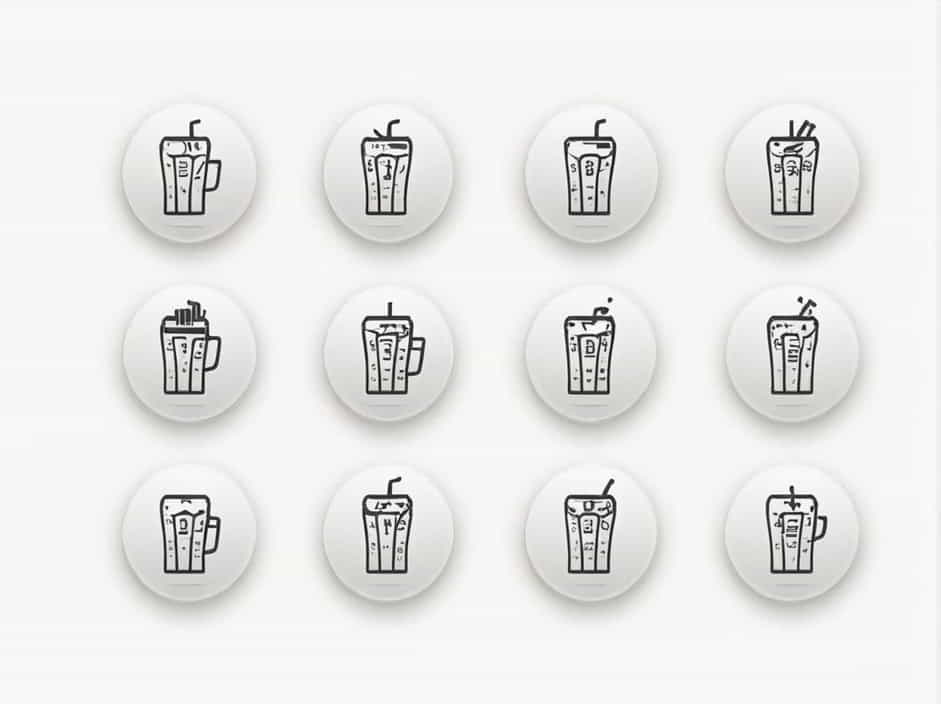Many beer lovers enjoy a cold pint without thinking too much about its ingredients. However, some people are concerned about E numbers in beer and whether they affect health. E numbers are food additives approved by the European Union for use in various food and beverage products.
But do these additives make their way into beer? And if so, are they safe to consume? This topic will explore the presence of E numbers in beer, their purpose, and their potential impact on health.
What Are E Numbers?
E numbers are codes assigned to food additives to ensure clarity in ingredient labeling across Europe. These additives serve various functions, such as:
-
Preservatives (prevent spoilage)
-
Colorants (enhance appearance)
-
Stabilizers (improve texture)
-
Antioxidants (prevent oxidation)
Some people worry that E numbers indicate artificial or unhealthy ingredients, but not all E numbers are synthetic. Many are naturally derived substances, such as vitamin C (E300) and beetroot extract (E162).
Do Beers Contain E Numbers?
The short answer is: it depends on the type of beer and the brewing process. Traditional beer is brewed using natural ingredients:
-
Water
-
Malted barley
-
Hops
-
Yeast
However, some commercial beers may contain E numbers to enhance shelf life, stability, or appearance. The use of additives in beer varies by country and brand.
Common E Numbers Found in Beer
1. E300 (Ascorbic Acid – Vitamin C)
-
Used as an antioxidant to prevent beer from going stale.
-
Helps maintain freshness and taste.
-
Naturally found in fruits and vegetables.
2. E270 (Lactic Acid)
-
Improves the acidity balance in some beer styles.
-
Often found in sour beers to enhance their tangy flavor.
3. E260 (Acetic Acid)
-
Naturally present in some fermented beverages.
-
Adds a slight tartness to specific beer varieties.
4. E405 (Propylene Glycol Alginate)
-
A stabilizer that helps maintain foam in beer.
-
Derived from brown seaweed and considered safe.
5. E150c/E150d (Caramel Coloring)
-
Used in dark beers to enhance color.
-
Some breweries use roasted malt instead of E150 additives.
6. E471 (Mono- and Diglycerides of Fatty Acids)
-
Occasionally used as an emulsifier to improve texture.
-
Rare in traditional brewing but may appear in mass-produced beers.
Why Are E Numbers Used in Some Beers?
1. To Extend Shelf Life
Beer is a fermented product that can spoil over time. Some breweries use E numbers like antioxidants (E300) and preservatives to ensure their beer remains fresh for longer, especially for export.
2. To Enhance Stability
Certain E numbers help beer maintain its foam, texture, and clarity, making it more appealing to consumers.
3. To Improve Appearance
Some breweries use caramel coloring (E150c, E150d) to achieve a consistent beer color, especially in dark lagers and stouts.
Are E Numbers in Beer Safe?
The European Food Safety Authority (EFSA) regulates and approves E numbers for human consumption. The E numbers used in beer are considered safe within permitted limits.
However, some individuals prefer to avoid artificial additives, especially if they have allergies or sensitivities. If you’re concerned about E numbers in beer, consider the following:
-
Choose craft or organic beers that prioritize natural brewing methods.
-
Read ingredient labels (though not all countries require full disclosure of additives in beer).
-
Opt for traditional beer styles like German purity law (Reinheitsgebot) beers, which use only water, malt, hops, and yeast.
Do All Beers Contain E Numbers?
No. Many traditional and craft beers avoid artificial additives altogether.
Beers brewed according to Germany’s Reinheitsgebot (Beer Purity Law) must contain only:
-
Water
-
Malt
-
Hops
-
Yeast
These beers do not use artificial E numbers and rely on natural brewing techniques to achieve stability and flavor.
Some organic beers also avoid synthetic additives, ensuring a more natural drinking experience.
How to Identify E Numbers in Beer
Unfortunately, beer labels do not always list E numbers explicitly. However, here are some ways to check:
-
Look for ingredient lists (some brands disclose additives).
-
Check brewery websites for product details.
-
Research beer purity laws in your country (some regulations restrict the use of certain E numbers).
If you’re unsure, stick to well-known craft and traditional beers that emphasize natural brewing processes.
Are There Health Risks Associated with E Numbers in Beer?
For most people, the E numbers found in beer are not harmful. However, individuals with specific allergies, sensitivities, or dietary restrictions may want to avoid certain additives.
Potential Concerns:
-
E150d (Caramel Coloring): May contain trace amounts of 4-MEI, a compound linked to health concerns in high doses.
-
E471 (Mono- and Diglycerides): Can be derived from animal fats, which may be an issue for vegetarians and vegans.
-
E405 (Propylene Glycol Alginate): Generally safe but can cause mild digestive discomfort in some people.
If you experience adverse reactions to certain beers, consider switching to additive-free or organic options.
Should You Worry About E Numbers in Beer?
While some beers contain E numbers for preservation, stability, or appearance, they are generally safe to consume. Traditional brewing methods minimize or eliminate the need for additives, making craft and purity law-compliant beers a great choice for those who prefer a more natural drink.
If you want to avoid E numbers in beer:
-
Choose craft or Reinheitsgebot beers
-
Look for organic or additive-free labels
-
Check ingredient lists when available
Ultimately, the best way to enjoy beer worry-free is to choose options that align with your personal preferences and health considerations.
